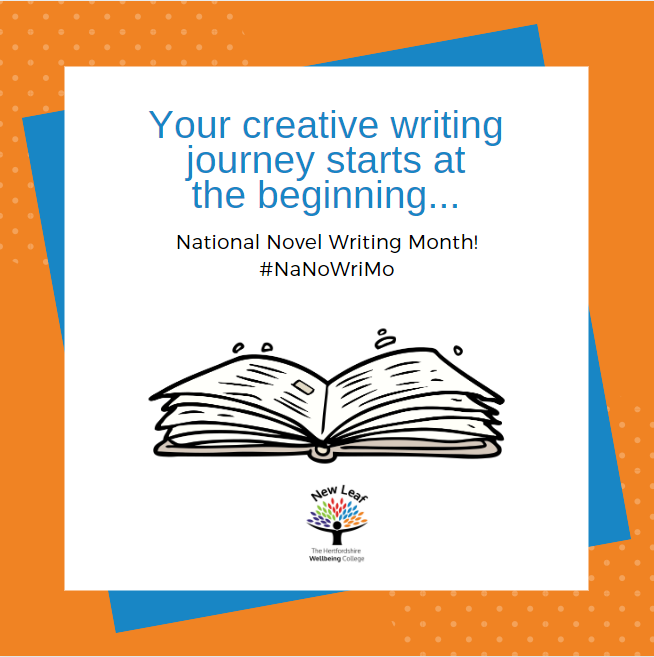#NANOWRIMO is an ambitious challenge that encourages you to write, track, share and cheer on your fellow writing community whilst also competing to write 50,000 words by the end of November. Taking part can help you focus and encourage you to stretch yourself. However, writing for your wellbeing doesn't have to have a deadline, a minimum word count or goal associated with it. Because writing for your wellbeing is about expression.
It is about using the written word to jot down your thoughts and unanswered questions or increase your creativity. You don't have to share it; it doesn't have to be perfect. It doesn't even have to be about writing stories or poems. Writing for your well-being is about writing as an outlet in whatever form you like.
Our writing creatively for wellbeing course shows you how simple it can be and provides great tips, practical exercises, and opportunities to connect. For a small taster, though, here are a few tips to get you started.

Why write?
Research has shown writing provides many benefits for your wellbeing, such as:
- Expressive writing leads to fewer doctors' appointments and causes a boost in the immune system for a short period.
- It helps to build positive emotion and engagement.
- Alleviates mental suffering and helps you find meaning from what's happened in your past.
Types of writing:
Start by thinking about what format of writing you enjoy the most. Explore and have a play with different types, such as:
- Novels
- Novellas
- Short stories
- Diaries
- Letters
- Poetry
- Comic books
and more!
How to start:
For one-off writing sessions, why not just find a quiet spot, grab some paper and a pen, and just write without thinking? For those of you who want to make it more of a routine, think about the best times for you to write and consider:
- Where do you write?
- How do you write?
- What do you write about?
- Who do you write for?
- Why do you write
If writing a story, consider:
- Character descriptions
- Scenes
- Times

Spellings, grammar etc. doesn’t have to be correct when your write!
You can come back to it another time and refine it.
Getting inspired:
- You can inspire your writing with random stimuli, such as pictures, conversations, and following up on other people's sentences.
- Open the dictionary, find a random word, and use it in a sentence.
- You can even write a poem about a piece of food or colour you see!
Writing Techniques
Here’s some writing techniques you could incorporate in your work:
- Alliteration
- Peter Parker, She sells seashells by the seashore
- Personification
- The books could sense me; they could hear my breath.
- Short sentences
- 5 senses (taste, smell, touch, hear, see)
- Varied punctuation
- Question marks, semicolons, and exclamation points
- Colours
Your writing possibilities are endless! Discover more at our next Writing Creatively For Wellbeing course.
Until then:
Have a look at some of our references for further encouragement!